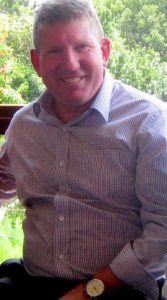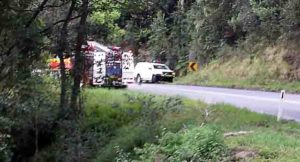Confusion at the Engagement Gateway
As grieving people encountering unfamiliar territory when we encounter, confront and ultimately pass through the Engagement Gateway, we may be puzzled or confused by what is happening. We are likely to need support from wise helpers. We may be testing our “survivor mission” muscles and imagining that we might possibly be able to fit back into so-called “normal” life. And we may also feel weak and ineffective as we enter this frightening new realm of service to others, anxiously questioning whether we will ever be able to function “normally” again.
That is why debriefing our experiences with compassionate friends can help us — and keep us from falling into depression or self-blame.
Below is an example of my debriefing (and reframing) of our meeting with the Tweed Shire Council. I take what might be called a spiritual perspective in this example.
It is one example of what we might need to do as we approach the Engagement Gateway if we decide to choose the path of service and activism as part of our journey to heal from grief and loss. That meeting and the whole activist campaign that followed it constituted a real turning point for me and are examples of my encounters with the Engagement Gateway and the realm of Engagement and my ultimate acceptance of a new role as a road safety activist.
What really happened IN OUR MEETING with Tweed Shire Council?
In September 2016, all that Lori, Kev and I want from the meeting is for the traffic and road safety managers and staff to hear our views that the poor condition of their rural road is responsible for Karl’s death and my injuries. That is all! We have good evidence and access to high-quality expert road safety advice.
But, as the situation between the Council and us deteriorates (even before our meeting), our concerns widen from being exclusively about the municipality’s disagreement with our analysis of the core cause of our crash. Our activism soon encompasses how they treat me — as a victim and a survivor — and my tragic situation. And later, as I heal, our actions will focus on matters of social justice, community engagement and, ultimately, community empowerment and citizen agency.
Later, still, we discover massive structural problems within the Council and its road safety network. We uncover evidence of deceit and lack of accountability. But our perceptions in this initial meeting are that the Council’s municipal staff and management seem convinced of the supreme importance of their comfort and safety.
Later, later, still, we will discover from the heartbroken mother that members of the Uki-based family of several Aboriginal children injured in the January 2015 (Bevelander) crash mounted a massive online petition and Facebook campaign to get the Council to repair the road. While the Council staff and their Sydney lawyer treat me as a villain in our meeting and frame my concerns as unexpected and irrational, I now know that by then they’ve been ducking a local residents’ petition and activist campaign for several months, perhaps for a year or more.
TAKING A spiritual perspective on road safety
If I step back a bit and try to take a spiritual perspective on what happened in the meeting, some interesting insights emerge. Our meeting in September 2016, is nearly eight months after the crash that killed Karl. Emerging from my self-ed isolation, I struggle to make sense of it. I need a spiritual hearing aid. I am also struggling to reconcile significant differences between my worldview and the attitudes of the road authority, Tweed Shire Council.
Now I must accept that I am becoming engaged in a survivor mission.
If I stand directly in front of the solid ground of the Engagement Gateway, face it head-on, and invite a spiritual perspective on the lukewarm response we received from the Council staff and management, I can identify several aspects that serve to ignite my passion to continue my activism. First, the road traffic staff and managers (and later their senior management, the Mayor and their Sydney-based lawyer) appear to be avoiding being conscious.
The destructive practice of doing nothing
With this spiritual perspective in mind, I take some guidance from the legendary Spanish activist and Catholic Saint, Ignatius of Loyola, whose advocacy campaigns included confronting the terrifying powers of the Inquisition. To me, the Council’s staff and managers demonstrate the destructive practice of doing nothing (especially in their delays, inaccurate and evasive responses to the State Coroner’s specific questions about road repairs following the 2015 Bevelander crash). They apparently fear inviting complexity into their professional lives. Their inertia seems to be the product of fear and laziness — as they commit what appears to me as the serious social sin of minimalism. They appear to believe their false truths.
In our meeting, only one staff member speaks out bravely against the Council’s agreed position. My notes reveal that she clearly asserts (in front of her colleagues): “In my opinion, the condition of the road was the core cause of the crash.”
The other staff members clearly lack a social conscience.
How the junior manager (the engineer) treats me (banning all expressions of emotion) suggests that he is blocking a positive, human response that might have arisen from an honest expression of compassion.
I have lost everything, all my identities, and I am distraught. Later I learn that a sense of disconnection from one’s identity or core self is a hallmark of trauma (Kasper, J., 2013, Co-destiny: 30).
How tragic is my situation! I seek only some form of justice and an opportunity to protect others.
While the collective abilities of the Council staff are probably not of the highest order, I also feel they did not try very hard. Karl is dead; they are alive, and they could do so much good with their lives.
“We’re just here to add a little weight to the scrum.”

At one point in our fractious meeting, clearly exasperated, Kev resorts to a classic rugby idiom to try to connect with the Council staff.
“Please don’t be afraid of us,” he pleads, leaning forward and speaking slowly in his strong Aussie drawl.
“We’re not here to threaten you. We’re on your side. We’re just here to add a little weight to the scrum.”

We Are the ENEMY
But the notion that a victim could be a colleague — even a partner or a collaborator — is apparently beyond the imagination of these emotionally numb bureaucrats and their evasive, cold-eyed Sydney silk. Kev later calls the whole meeting experience “red tape gone mad”.
We are the enemy.
A dramatic example of the costs of their inattention is revealed the following week when another motorist plummets off the same cliff at the same spot (and blessedly survives because the river is shallow at that time).

insights from two Sufi friends
I ask my Sufi friend Rose to help me make sense of the treatment I received from the Tweed Shire Council as I engaged in my survivor mission. Rose comments that when she finds herself banging her head against a thick wall, she first tries to identify what’s personal and what’s systemic. Are people hands tied?
Rose also values looking at our own behavior to see whether (or to what extent) I am acting in a way similar to what I strongly object to in them and/or I am forcing my will on someone.
On the subject of ethics, she says that ethics, apprehended by a loving heart, contributes to a sense of harmony and trust through right relationships and sensitivity to appropriate boundaries. She clarifies that Sufism is not a way of making the ordinary miraculous, but rather a way of integrating the truly miraculous into ordinary human life. From our conversations, I imagine that, had we been able to join our minds together in that painful meeting at Tweed Shire Council in September 2018, we might have achieved what the Sufis call “active reciprocity”, to exchange energy among ourselves and deepen our understanding of the situation. Sadly, none of that occurred.
For myself, I can give sorrow words and have people listen to my words of sorrow. Astonishingly, I can experience the healing power of laughter, as we three co-conspirators fall about laughing at the antics of the staff in the meeting. It was so joyful to be laughing — at last!
I agree with Kahlil Gibran in The Prophet: “the deeper that sorry carves into your being, the more joy you can contain.”
Karl’s insights: AT TWEED SHIRE COUNCIL, they all know it!
Immediately following our meeting with Tweed Shire Council, Karl summarizes the situation in the meeting, channelling his inner political scientist:
“These people are only frightened bureaucrats and minions. They did not really ‘kill’ me. They were just not totally paying attention. The months flew by and then one terrible day, they all realized that the project that had been ‘languishing’ was now too late: a man had died. They simply neglected their duty of care. They would know that. You can say it, but there is no need to rub it in. They all know it.”
I agree. This experience was a true turning point in my healing journey. In my simple, painful statement, I gave sorrow words.

